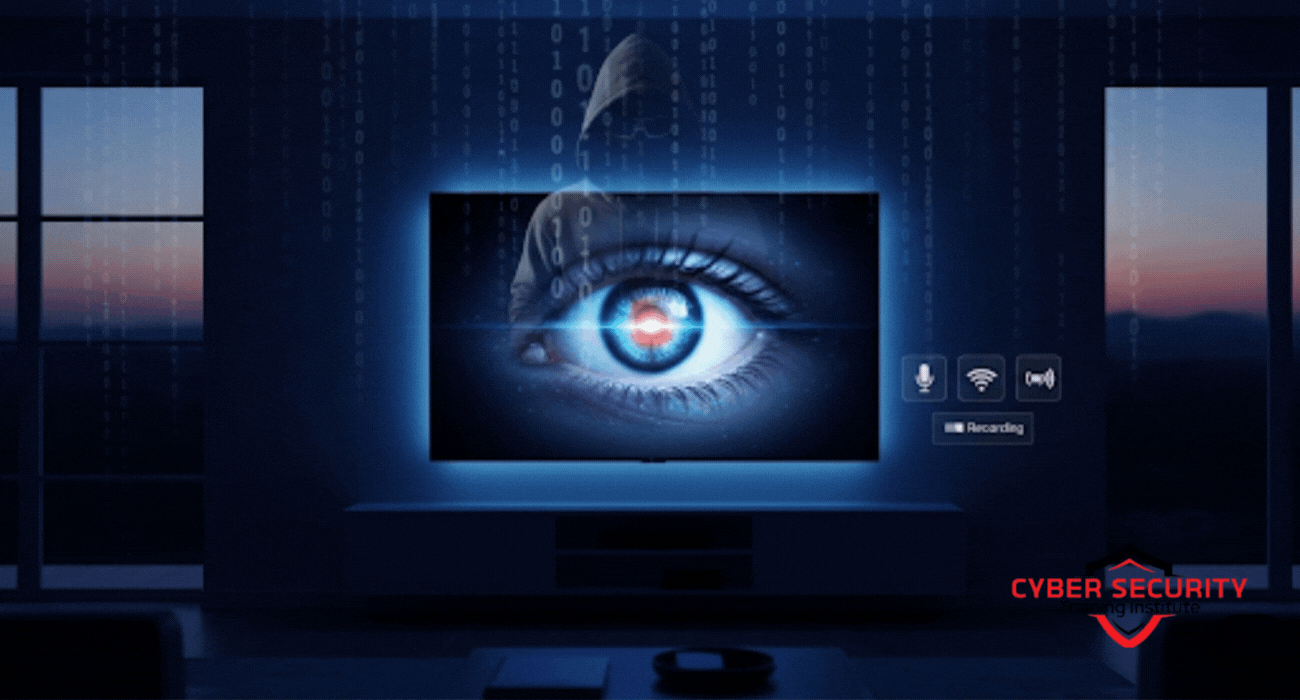Why Your Smart TV Might Be Spying on You
Your smart TV is more than just a screen for watching movies or bingeing your favorite shows. It’s a connected device, packed with apps, voice assistants, and internet capabilities that make it a hub of entertainment. But here’s the unsettling truth: while you’re enjoying Netflix or streaming YouTube, your smart TV might be quietly collecting data about you. From tracking your viewing habits to listening in on conversations, smart TVs have raised serious privacy concerns. In this blog post, we’ll explore how smart TVs gather data, why it matters, and what you can do to protect yourself—all in a way that’s easy to understand, even if you’re not a tech expert.

Table of Contents
- What Is a Smart TV and How Does It Work?
- How Smart TVs Collect Your Data
- Why Companies Want Your Data
- The Privacy Risks of Smart TVs
- Common Data Collection Methods
- How to Protect Yourself
- Conclusion
- Frequently Asked Questions
What Is a Smart TV and How Does It Work?
A smart TV is essentially a television that connects to the internet, allowing you to access streaming services like Netflix, Hulu, or Disney+, browse the web, or use apps directly on the TV. Unlike traditional TVs, smart TVs come with operating systems—think of them as the software that powers your smartphone or computer. Popular smart TV operating systems include Samsung’s Tizen, LG’s webOS, and Android TV (used by brands like Sony and TCL).
These TVs often include features like voice control (e.g., “Hey, play Stranger Things!”), personalized recommendations, and even integration with smart home devices. But to deliver these conveniences, smart TVs need to collect and process data, which is where privacy concerns creep in.
How Smart TVs Collect Your Data
Smart TVs are designed to gather information about how you use them. This can include:
- Viewing Habits: What shows or movies you watch, how long you watch them, and even what ads you skip.
- App Usage: Which apps you use, how often, and what you search for within those apps.
- Voice Commands: If you use voice features, your TV may record and analyze what you say.
- Device Information: Details about your TV model, IP address, and even other devices connected to your home network.
Some smart TVs use a technology called Automatic Content Recognition (ACR), which analyzes what’s on your screen—whether it’s a streaming show, a Blu-ray, or even a video game—to track your preferences. This data is often shared with third parties, like advertisers or data brokers, who use it to build detailed profiles about you.
Why Companies Want Your Data
Data is big business. Companies collect information from your smart TV for several reasons:
- Targeted Advertising: By knowing what you watch, companies can show you ads tailored to your interests, which are more likely to result in purchases.
- Improving Products: Manufacturers use data to understand how people use their TVs, which helps them design better features or fix bugs.
- Selling Data: Some companies share or sell your data to third parties, who combine it with other information to create detailed consumer profiles.
- Partnerships: TV makers often partner with streaming services or ad networks, sharing data to enhance their services or generate revenue.
While some of these reasons—like improving products—might seem harmless, the lack of transparency about how your data is used or shared can be concerning.
The Privacy Risks of Smart TVs
The data your smart TV collects isn’t just about recommending the next show to binge. There are real privacy risks, including:
- Data Breaches: If a TV manufacturer or app provider gets hacked, your personal information could be exposed.
- Unwanted Surveillance: Voice assistants or built-in microphones might record conversations, even when you’re not actively using them.
- Profiling: Companies can combine TV data with other information (like your online shopping habits) to create detailed profiles, which could be used in ways you didn’t expect, like influencing insurance rates or job opportunities.
- Lack of Consent: Many smart TVs collect data by default, and opting out can be tricky or unclear.
In 2017, for example, Vizio, a popular TV brand, was fined $2.2 million by the U.S. Federal Trade Commission for collecting viewing data from 11 million TVs without clear user consent. This case highlighted how widespread and sneaky data collection can be.
Common Data Collection Methods
To understand the scope of data collection, here’s a table summarizing the main ways smart TVs gather information:
| Method | Description | Privacy Impact |
|---|---|---|
| Automatic Content Recognition (ACR) | Analyzes what’s displayed on your screen to track viewing habits. | Can monitor all content, even non-streaming sources like DVDs or gaming consoles. |
| Voice Recognition | Records and processes voice commands for hands-free control. | May capture unintended conversations or sensitive information. |
| App Tracking | Monitors which apps you use and what you do within them. | Shares data with app providers, often without clear user permission. |
| Network Monitoring | Tracks devices connected to the same Wi-Fi network as your TV. | Can reveal information about other devices or household members. |
How to Protect Yourself
While smart TVs come with privacy risks, there are steps you can take to minimize them:
- Disable Data Collection: Check your TV’s settings for options to turn off ACR or data sharing. Look for terms like “Viewing Data,” “Smart Features,” or “Personalization.”
- Turn Off the Microphone: If your TV has a voice assistant, disable the microphone when not in use. Some remotes have a physical mute button for this.
- Use a Separate Streaming Device: Instead of using your TV’s built-in apps, consider a device like a Roku, Amazon Fire Stick, or Apple TV, which may offer better privacy controls.
- Limit App Usage: Only install apps you trust, and avoid signing into them with personal accounts unless necessary.
- Block Internet Access: If you don’t need smart features, disconnect your TV from Wi-Fi or use your router to block its internet access.
- Read Privacy Policies: Check the TV manufacturer’s or app provider’s privacy policy to understand what data they collect and how it’s used.
- Use a VPN: A Virtual Private Network (VPN) can mask your TV’s IP address, making it harder for companies to track your location or habits.
While no solution is foolproof, combining these steps can significantly reduce your smart TV’s ability to spy on you.
Conclusion
Smart TVs bring incredible convenience, but they come with a hidden cost: your privacy. From tracking your viewing habits to potentially listening to your conversations, these devices collect a surprising amount of data, often without clear consent. By understanding how smart TVs work, why companies want your data, and what risks are involved, you can make informed choices about how to use your TV. Taking simple steps—like disabling data collection, using external streaming devices, or even disconnecting your TV from the internet—can help you enjoy your favorite shows without feeling like you’re under surveillance. Stay informed, adjust your settings, and take control of your privacy.
Frequently Asked Questions
Can my smart TV really spy on me?
Yes, smart TVs can collect data about your viewing habits, app usage, and even voice commands, often sharing this with advertisers or third parties.
What is Automatic Content Recognition (ACR)?
ACR is a technology that analyzes what’s on your TV screen to track your viewing habits, even for non-streaming content like DVDs or games.
Do all smart TVs collect data?
Most smart TVs collect some form of data, but the extent varies by brand and settings. Check your TV’s privacy settings to see what’s being collected.
Can my smart TV listen to my conversations?
If your TV has a voice assistant and the microphone is active, it may record conversations, especially if it misinterprets background noise as a command.
How can I tell if my TV is collecting data?
Check your TV’s settings for options like “Data Sharing” or “Smart Features.” You can also review the manufacturer’s privacy policy.
Is it safe to connect my smart TV to Wi-Fi?
Connecting to Wi-Fi enables data collection. If you’re concerned, consider disconnecting the TV or using a router to block its internet access.
Can I turn off data collection on my smart TV?
Many TVs allow you to disable features like ACR or data sharing in the settings, though the process varies by brand.
Are some smart TV brands more private than others?
Some brands, like LG or Samsung, offer more privacy controls, but no brand is completely private. Research the brand’s privacy policy before buying.
Can I use a smart TV without an internet connection?
Yes, you can use it for non-smart features like watching cable or DVDs, but you’ll lose access to streaming apps and online features.
Do streaming apps on my TV track me?
Yes, apps like Netflix or YouTube often track your usage and share data with advertisers, similar to how they work on phones or computers.
What’s the risk of my TV data being hacked?
If a manufacturer or app provider is hacked, your viewing habits, IP address, or even voice recordings could be exposed.
Can I use a VPN with my smart TV?
Yes, many smart TVs support VPN apps, or you can set up a VPN on your router to protect all devices, including your TV.
Does turning off my TV stop data collection?
Not entirely. Some TVs may still collect data when in standby mode if they’re connected to the internet.
Are voice assistants on smart TVs safe?
They can pose risks if the microphone is always on. Disable the microphone or mute it when not in use.
Can I opt out of data sharing completely?
It’s difficult to opt out completely, but you can minimize data sharing by disabling features and limiting app usage.
Do smart TVs share data with advertisers?
Yes, many TVs share data with advertisers to deliver targeted ads based on your viewing habits.
Is it better to use a streaming device instead of a smart TV?
Streaming devices like Roku or Fire Stick can offer better privacy controls and are easier to replace if you’re concerned about data collection.
How do I find my TV’s privacy settings?
Look in the TV’s settings menu for options like “Privacy,” “Data Sharing,” or “Smart Features.” Check the user manual for specific instructions.
Can my smart TV track my location?
Yes, if it’s connected to the internet, it can use your IP address to estimate your location unless you use a VPN.
Should I avoid buying a smart TV?
Not necessarily, but be aware of the privacy risks and take steps to protect yourself, like disabling data collection or using external devices.
What's Your Reaction?
 Like
0
Like
0
 Dislike
0
Dislike
0
 Love
0
Love
0
 Funny
0
Funny
0
 Angry
0
Angry
0
 Sad
0
Sad
0
 Wow
0
Wow
0








![How to Install RHEL 10 on VMware/VirtualBox [Tutorial]](https://www.cybersecurityinstitute.in/blog/uploads/images/202509/image_430x256_68b56dc967a4a.jpg)





